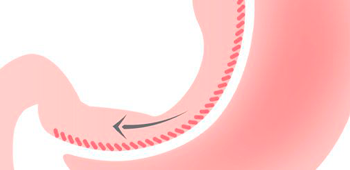
Non-alcoholic fatty liver disease (NAFLD) has become a very prevalent concern around the world. Particularly since lifestyles, diets, and habits change. This condition involves fat building up in the liver, while this might not sound harmful, it can lead to some very serious health complications if left without treatment. This blog aims to educate about their health, how Non-alcoholic fatty liver disease (NAFLD) can affect the body, and what can be done to take care of, manage, or even reverse it.
Fatty Liver Symptoms
Often fatty liver symptoms progress silently, making it difficult to diagnose in the early stages, as it often goes unnoticed. However, as symptoms progress, various signs and symptoms may begin to appear. Knowing how to recognize it early on can be crucial for effective treatment and management.
- Fatigue: This is one of the most common symptoms, a constant feeling of tiredness, and it doesn’t go away with sleep.
- Abdominal discomfort: Any pain or discomfort, especially in the upper right of the abdomen, is another key symptom.
- Unexplained weight loss: If you find that you’ve been losing weight without trying to, it could be related to fatty liver causes
- Weakness: A general feeling of weakness, this is another symptom that often comes with the condition.
- Jaundice: in some advanced stages, the yellowing of the skin and eyes may occur, meaning there is a more severe liver involvement.
Understanding and being able to identify any of the fatty liver symptoms is the first step toward an appropriate treatment, significantly improving the outcome.
At LIMARP we provide tailored fatty liver treatment plans that are unique for each individual. Custom assistance with medical personnel, as well as frequent scheduled sessions to help treat fatty liver symptoms.
The Silent Progress of Fatty Liver Disease
With fatty liver disease progress is often slow, with many people claiming they are unaware that they’ve had this condition until it was very advanced, as in the late stages. Early-stage NAFLD might not be as noticeable but it does present symptoms, and which is why it’s commonly referred to as a “silent” disease. However, as time goes on and the condition progresses, symptoms may begin to appear more clearly.
- Silent symptoms: in the beginning stages, NAFLD may not cause any noticeable discomfort or any pain. The lack of symptoms is what makes any regular check-ups and screenings so vital, especially for those in who are at higher risk of causes such as obesity and diabetes.
- Progression to NASH: When this disease advances, it can progress to a more severe form known as non-alcoholic steatohepatitis (NASH). NASH is set apart by liver inflammation and damage, which can eventually lead to fibrosis (scarring of the liver) and, in certain cases, cirrhosis or liver cancer.
Knowing the potential progress of this disease, allows you to highlight the importance of early detection and treatment. By knowing the risks you can take the necessary measures, and you can significantly reduce the chances of severe liver complications.
Fatty Liver Symptoms in Females
When it comes to symptoms in females, however, this condition may show up differently in comparison to males. Hormonal factors, especially for post-menopause, can be more severe and onset of symptoms in females. Women are also at a high risk if they have conditions such as polycystic ovary syndrome (PCOS), which has also been known to be one of the contributing factors of causes in females.
- Increased fatigue: The hormonal fluctuations can exacerbate the feelings of tiredness, making fatigue a well-known symptom.
- Abdominal weight gain: Women may notice that there’s been an increase in abdominal fat, which is a risk factor.
- PCOS and fatty liver: Women with PCOS are at an even higher risk because this condition is often linked to developing this disease.
- Emotional symptoms: Experiencing mood swings and emotional instability can also be part of the symptoms in females.
Addressing symptoms in females requires a tailored approach, often focusing on underlying hormonal issues and specific treatments that consider the unique needs of women.
Fatty Liver Symptoms in Males
For males, symptoms may present themselves somewhat differently. In males, may present themselves a bit differently than in females, even though the underlying causes are quite similar. Males might experience more noticeable physical symptoms and are often at a higher risk of having more severe types of liver disease.
- Increased abdominal girth: Males may have a more noticeable increase in abdominal fat, which can significantly increase causes.
- Liver enzyme elevation: Having blood tests may reveal if there are any enzymes that could indicate liver inflammation as part of the symptoms in males.
- A higher risk of liver fibrosis: Males are at a higher risk more often, it can advance from simple to fibrosis, a more severe medical condition.
- Disturbances in Sleep: Can cause sleep apnea or other sleep-related concerns in males, this adds to the list of symptoms in males.
Understanding symptoms in males and addressing the underlying causes is crucial for effective treatment and prevention of more severe liver conditions.
Fatty Liver Causes
Causes are commonly linked to lifestyle habits and dietary choices, although genetics can also play a role. Having an understanding of the causes is crucial for both the prevention and treatment.
- Obesity: One of the primary causes is obesity, especially when excess fat accumulates around the area of the abdomen.
- Type 2 diabetes: Insulin resistance and type 2 diabetes are closely related to this problem, because it promotes fat storage in the liver.
- High cholesterol: High levels of cholesterol and triglycerides in the blood.
- Metabolic syndrome: Various conditions, including high blood pressure and also insulin resistance.
- Deficient diet: A diet that is high in sugars, refined carbohydrates, eating junk food, and unhealthy fats.
- Sedentary lifestyle: Not including physical activity is a key factor, which contributes to weight gain and fat accumulation in the liver.
Identifying and addressing is critical for effective treatment and long-term management of the disease.
The Impact of Diet on Fatty Liver Causes
Diets are a building stone in both the development and management of NAFLD. On the other hand, eating a balanced and nutritious diet can help in preventing and even reverse the condition.
- Processed foods: For diets high in processed foods, they are loaded with sugars, refined carbohydrates, and unhealthy fats, which are the major contributors to fatty liver causes.
- Sugary beverages: Sugary drinks, like soda and certain fruit juices, are highly linked to developing NAFLD. These drinks offer a high increase in calorie intake and can cause spikes in blood sugar levels very rapidly, increasing symptoms.
- Healthy alternatives: It’s important to focus on a rich diet with whole foods, such as vegetables, fruits, lean proteins, and healthy fats. These foods are high in antioxidants, berries, and leafy greens, and can help reduce liver inflammation, another common symptom of fatty liver.
Committing to a diet that avoids the aforementioned known causes and promotes liver health can be one of the best and most efficient ways to prevent and manage NAFLD.
The Role of Genetics in Fatty Liver Causes
Although certain lifestyle factors are the main reason that contribute to causes, genetics can also play a major role. Some people may be more inclined to develop NAFLD due to inherited traits. This genetic inclination can impact how the body processes fats and sugars, increasing the chance of fat accumulation in the liver.
- Your family history: If you know that disease is common in your family, it’s critical to be vigilant about regular check-ups and medical screenings. Genetic factors such as being more predisposed to any of the mentioned causes, even if you maintain a healthy lifestyle.
- Ethnic variations: Studies show that certain types of ethnic groups, like Hispanics might be at a higher risk of developing NAFLD. This is an increased risk that is due to genetic factors that can affect fat metabolism.
Understanding what the role of genetics play in fatty liver causes can aid you in taking steps to manage or even prevent the condition. If you have any type of family history of liver disease, talking about this with your healthcare provider can aid in applying strategized screening and intervention.
Can Fatty Liver Be Cured?
Knowing whether fatty liver can be cured is a very common concern among diagnosed patients with this condition. The answer depends largely on which stage of the condition they are detected to be on, and the patient’s commitment to lifestyle changes.
- Lifestyle changes: The most efficient way to reduce fatty liver is with significant lifestyle changes, mainly in dieting and exercising. Weight loss is commonly the first recommendation given, as it can directly influence one of the primary fatty liver causes.
- Changes in your diet: Committing to a fatty liver diet is rich in whole foods, lean proteins, and healthy fats, this can make a great difference in reverting fatty liver symptoms.
- Exercise routine: Including at least 30 minutes of moderate exercise on most days of the week is one of the most effective ways to reduce liver fat in the body.
- Manage underlying conditions: Some conditions like diabetes or high cholesterol are commonly underlying fatty liver causes. This however can be managed with medication and lifestyle changes.
- Limit your alcohol consumption: Although NAFLD is not caused directly by alcohol, drinking excessively can speed up the condition, making it difficult to treat.
Following these steps, a lot of people can successfully reduce or eliminate fat from their liver, improving their overall health and reducing any risks of complications.
Fatty Liver Treatment
Treating fatty liver diseases requires a forward approach that can address the main underlying causes and symptoms. The following list includes some of the most common treatment plans that may be available to you, to start treating it.
Fatty Liver Diet
A well-balanced diet is essential for any treatment plan. Here are some examples of how it should look like:
- High in fiber: Include plenty of fruits, vegetables, and whole grains in your diet. Fiber can help digestion and support liver health, making it a crucial component of any fatty liver diet.
- Healthy fats: Include sources of omega-3 fatty acids, like fish, nuts, and seeds, while also avoiding trans fats and saturated fats. These healthy fats can help aid in reducing liver inflammation, a common fatty liver symptom.
- Reduce sugar and refined carbs: Food high in sugar and refined carbohydrates can significantly contribute to fat buildup in the liver. A good diet will minimize these foods to help in reverting the condition.
- Moderate food portions: Overeating, even if it’s on healthy foods, can still contribute to weight gain and can worsen any symptoms. Portion control is key in any diet.
Planning an effective diet can make a significant improvement in both preventing and treating fatty liver disease.
What Foods Should I Avoid with Fatty Liver?
Certain types of food can worsen symptoms and should be limited or completely avoided as a part of a diet:
Sugary foods and drinks: These include all types of candies, sodas, and fruit juices with added sugars.
Refined carbohydrates: White bread, pasta, and other refined grains should also be limited in their consumption.
Fried foods: These are very highly unhealthy fats, which will increase the liver’s inflammation, a key factor in symptoms.
Alcohol: NAFLD isn’t caused directly by alcohol, limiting the alcohol intake is crucial for the liver and its overall health, an effective treatment.
Avoiding these foods and following a diet focused on whole, unprocessed foods can greatly aid in managing and reversing fatty liver disease.
What is the Life Expectancy of a Person with a Fatty Liver?
The life expectancy of someone with fatty liver disease varies widely because, depending on the stage of the disease, and if there are other health issues, but also how well the condition of it is managed. In most cases, if NAFLD is detected early on, and the patient follows a proper fatty liver diet and treatment plan, it can certainly lead to a normal life expectancy.
However, in the case that fatty liver diseases progress to the more severe stages, as is with non-alcoholic steatohepatitis (NASH) or cirrhosis, can lead to more serious complications down the line, including liver cancer and liver failure, which can significantly reduce life expectancy.
An early detection and intervention: Monitoring regularly and early fatty liver treatment is essential in preventing the progress of the disease.
Management of comorbidities: Such conditions like diabetes and cardiovascular disease, often linked to fatty liver causes, must be managed to improve the outcome overall.
Healthy lifestyle: Committing to a healthy lifestyle, as well as having a proper fatty liver diet and regular exercise, can dramatically improve both liver health and overall life expectancy for the patient.
This is a condition that, while serious, can often be managed and even reversed with the right approach. Understanding the causes, recognizing the symptoms, and taking proactive steps through diet, exercise, and medical care are all crucial for maintaining liver health.
Contact
If you’re concerned about fatty liver symptoms, and causes, or are interested in learning more about fatty liver treatment options, the team at LIMARP is here to help. We offer personalized treatment plans and expert guidance to support your journey toward better liver health. Contact us today to schedule a consultation.
Resources
For more information on fatty liver disease, you can visit the following resources:


